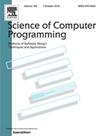An adaptive pairwise testing algorithm based on deep reinforcement learning
IF 1.4
4区 计算机科学
Q3 COMPUTER SCIENCE, SOFTWARE ENGINEERING
引用次数: 0
Abstract
Pairwise testing is an important branch of combinatorial testing that focuses on finding a minimum test suite that satisfies pairwise coverage. However, most existing methods fail to achieve a good balance between exploration and exploitation capabilities when searching for the test suite, or may not fully utilize the information related to the already-generated test cases: This can lead to unsatisfactory performance in combination coverage. To address these limitations, we propose an adaptive pairwise testing framework based on deep reinforcement learning, APT-DRL. Using this, a deep reinforcement learning model for pairwise testing based on the Proximal Policy Optimization (PPO) method is developed. We design the pairwise coverage vector as the state space, and use neural networks to solve the search problem in this huge state space. To reduce the size of the Markov decision space, we also design a masking technique to avoid repeated generation of actions (test cases) that have already been used. We conducted experiments using APT-DRL and eight other baseline algorithms (representing three categories): The results show that APT-DRL, as a novel pairwise testing method, significantly outperforms four random-based pairwise testing methods (RT, ARTsum, FSCS-HD, and FSCS-SD); is comparable to, or surpasses, the two heuristic algorithms (IPOG and AETG); and has better test-suite-generation efficiency and superior effectiveness than the two swarm-intelligence-based algorithms (GSTG and DPSO).
一种基于深度强化学习的自适应成对测试算法
成对测试是组合测试的一个重要分支,其重点是寻找满足成对覆盖的最小测试套件。然而,当搜索测试套件时,大多数现有的方法不能很好地平衡探索和开发能力,或者不能充分利用与已经生成的测试用例相关的信息:这可能导致组合覆盖中的性能不令人满意。为了解决这些限制,我们提出了一种基于深度强化学习的自适应成对测试框架,APT-DRL。在此基础上,提出了一种基于近端策略优化(PPO)方法的深度强化学习两两测试模型。我们将两两覆盖向量设计为状态空间,并利用神经网络在这个巨大的状态空间中解决搜索问题。为了减小马尔可夫决策空间的大小,我们还设计了一种屏蔽技术,以避免重复生成已经使用过的操作(测试用例)。我们使用APT-DRL和其他8种基线算法(代表3个类别)进行了实验:结果表明,APT-DRL作为一种新型的两两检验方法,显著优于4种基于随机的两两检验方法(RT、ARTsum、FSCS-HD和FSCS-SD);与两种启发式算法(IPOG和AETG)相当或超过;与两种基于群体智能的算法(GSTG和DPSO)相比,具有更好的测试套件生成效率和更优的有效性。
本文章由计算机程序翻译,如有差异,请以英文原文为准。
求助全文
约1分钟内获得全文
求助全文
来源期刊

Science of Computer Programming
工程技术-计算机:软件工程
CiteScore
3.80
自引率
0.00%
发文量
76
审稿时长
67 days
期刊介绍:
Science of Computer Programming is dedicated to the distribution of research results in the areas of software systems development, use and maintenance, including the software aspects of hardware design.
The journal has a wide scope ranging from the many facets of methodological foundations to the details of technical issues andthe aspects of industrial practice.
The subjects of interest to SCP cover the entire spectrum of methods for the entire life cycle of software systems, including
• Requirements, specification, design, validation, verification, coding, testing, maintenance, metrics and renovation of software;
• Design, implementation and evaluation of programming languages;
• Programming environments, development tools, visualisation and animation;
• Management of the development process;
• Human factors in software, software for social interaction, software for social computing;
• Cyber physical systems, and software for the interaction between the physical and the machine;
• Software aspects of infrastructure services, system administration, and network management.
 求助内容:
求助内容: 应助结果提醒方式:
应助结果提醒方式:


